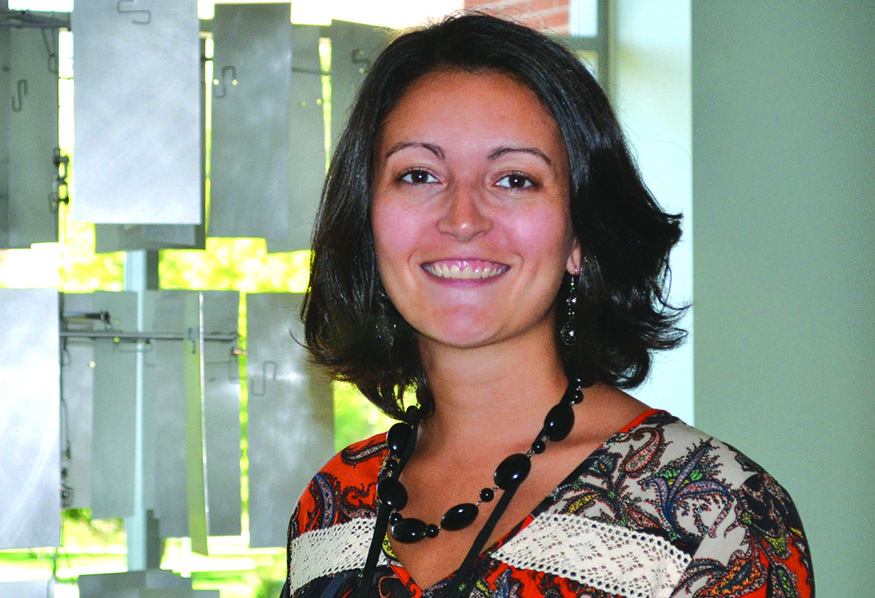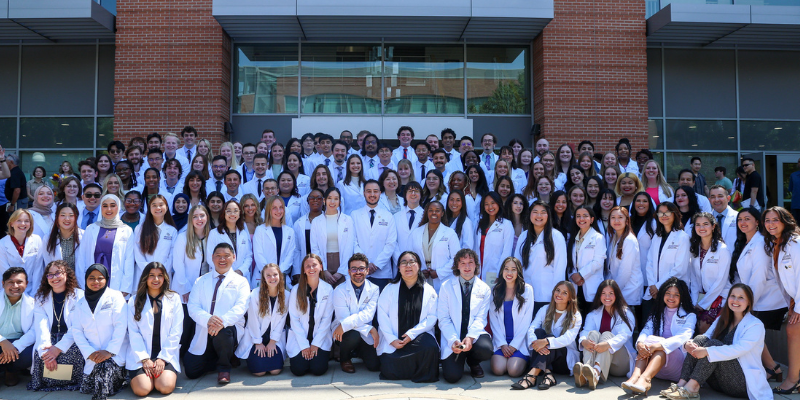Ellen Fulp, PharmD, believes that CU's new palliative care program is just what the doctor ordered! Working for a hospice pharmacy benefit management (PBM) company in North Carolina specializing in geriatrics, Ellen Fulp, PharmD, sees a lot of patients who are dealing with life-limiting illnesses. These same folks are usually taking multiple medications. “I love what I do, but so much of it I learned on the job, and not during pharmacy school,” says Fulp. “As a pharmacy student, I didn’t get a lot of information on ending meds or withholding or removing therapy… and so frequently that’s what we are faced with as pharmacists specializing in geriatrics and hospice care,” Fulp laments. From her experience, the palliative care approach is “hope for the best, plan for the worst.”
Certified in geriatrics, Fulp is interested in furthering her education in palliative care. According to Fulp, “There is no pharmacy board certification for end of life care.” Her quest to further her education in geriatrics and end of life care led her to the University of Colorado’s Master’s Degree in Palliative Care (iPallCARE). “The more I read about the program, the more I was drawn to it,” says Fulp.
For Fulp, the appeal was the interdisciplinary focus. Comprised of nurses, physicians and physician assistants from a wide range of medical specialties, and one geriatric pharmacist (Fulp), the inaugural class is composed of 16 health care professionals.
Designed for the mid-career provider, the first cohort of Palliative Care Community Specialists began this fall 2016. The University of Colorado Graduate School at the Anschutz Medical Campus has actually developed two innovative, predominantly online palliative care educational programs: An Interprofessional Master of Science in Palliative Care (MSPC) degree and an Interprofessional Palliative Care Certificate (IPCC). The MSPC prepares providers to become Palliative Care Community Specialists and focuses on advancing clinical knowledge, using evidence in building palliative care practice and communication skills. The MSPC program requires 36 semester credit hours, designed to be completed in two years of continuous study, but is flexible up to seven years, depending on the student’s needs. The IPCC is for students seeking additional palliative care education or preparing for palliative nursing certification examinations, but not ready to commit to completing a master’s degree. Certificate students complete 12 credit hours of the MSPC. Both programs include three-day on-campus intensives focused on improving communication and collaboration in real-world simulations.
“The combination of online and on-campus course work is an excellent melding,” says Fulp. The in-person/on-campus portion included the three-day intensive, approximately three weeks after the start of class. “It was absolutely a positive experience,” says Fulp who traveled from North Carolina to Colorado to meet, mingle and learn with fellow students from all over the country. Feeling welcomed, if a little intimidated, Fulp says, “It is nice to see pharmacy recognized as part of the team, and it is a good opportunity to learn from, and as, an interdisciplinary group.” Fulp has found that the program recognizes the unique contributions each interdisciplinary team member makes in the provision of state-of-the art palliative care. “From my experience, it takes a village to provide excellent palliative care,” says Fulp.
Excited by the prospect of an advanced degree in palliative care and working with other health care professionals, “This provides great exposure for pharmacy and how we fit in to the plan.”
Fulp says that her colleagues in North Carolina are intrigued by the degree she is pursuing. “They are all asking about what we are learning.”
What is Palliative Care and Why the Need
With 75 million baby boomers entering their senior years needing individualized care and help making medical decisions, the nation’s health care providers are ill-prepared for the upcoming “silver tsunami.” Workforce estimates suggest that we will need upwards of 15,000 providers to meet demand for Palliative Care Services throughout our health care systems.
Palliative Care helps patients with serious or life-limiting illness and their family caregivers, when they experience suffering due to pain, numerous non-pain symptoms, and psychosocial and spiritual distress. Many are familiar with hospice care, which is a subset of Palliative Care for those very near the end-of-life. Palliative Care takes lessons learned in hospice care and integrates this earlier in the course. Integration of Palliative Care with disease-directed treatment such as chemotherapy for lung cancer have demonstrated improved quality of life and improved survival.
Listen to Ellen's interview with Rick Crandall of Cruisin' 1430 am about why seniors seem to be so sick this year.
http://www.cruisin1430.com/media/audio-channel/ricks-interview-senior-getting-sick-skaggs-school-pharmacy



